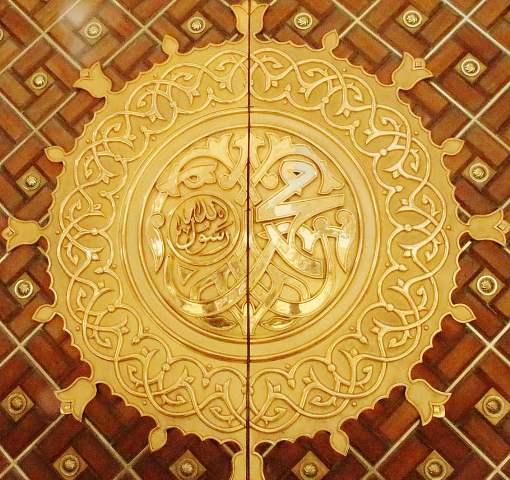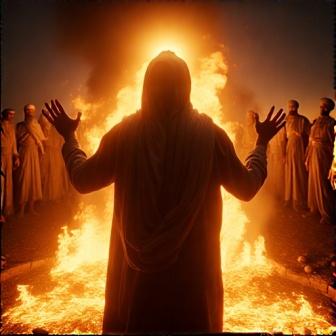The stories of prophets in Islam represent spiritual guidance, moral lessons, and historical significance that forms a central part of Islamic teachings. These narratives, preserved in the Quran and authentic Hadith, chronicle the lives of 25 prophets specifically mentioned by name in Islamic scripture, from Adam (PBUH), the first human and prophet, to Muhammad (PBUH), the final messenger of Allah.
The prophetic stories in Islam serve multiple purposes – they validate the continuity of divine guidance throughout human history, demonstrate the consistent message of monotheism (Tawhid) across different eras and communities, and provide believers with examples of steadfastness, patience, and faith in the face of adversity. Each prophet faced unique challenges while delivering the same fundamental message: worship Allah alone and live righteously.
The Concept of Prophethood in Islam
In Islamic theology, prophets (Anbiya) are individuals chosen by Allah to receive divine revelation and guidance. They are tasked with conveying Allah’s message to humanity and serving as exemplary models of righteous conduct. The Quran mentions that Allah has sent prophets to every nation throughout history, stating: “And for every nation there is a messenger” (Surah Yunus, 10:47).
Characteristics of Prophets
Prophets in Islam share several distinguishing qualities:
- Isma (Infallibility): Prophets are protected from committing major sins, ensuring the purity of their message.
- Exceptional Moral Character: They exemplify the highest standards of ethics and behavior.
- Divine Selection: Prophethood is bestowed by Allah’s choice, not earned through personal effort.
- Miracles (Mu’jizat): Many prophets were granted miraculous abilities to validate their prophethood.
The Purpose of Prophetic Stories
The Quran itself explains why these stories are preserved: “And all that We relate to you of the stories of the messengers is that by which We make firm your heart” (Surah Hud, 11:120). These narratives serve to:
- Strengthen faith by demonstrating Allah’s consistent support for His messengers
- Provide moral lessons applicable to contemporary challenges
- Illustrate the consequences of accepting or rejecting divine guidance
- Establish historical continuity in Allah’s relationship with humanity
Major Prophets and Their Stories
Prophet Adam (PBUH): The First Human
Adam (PBUH) holds a special place as both the first human and the first prophet. His story begins with Allah’s announcement to the angels: “Indeed, I will make upon the earth a successive authority” (Surah Al-Baqarah, 2:30).
Key elements of Adam’s (PBUH) story include:
- His creation from clay
- Allah teaching him the names of all things
- The angels prostrating to him except Iblis (Satan)
- His dwelling in Paradise with his wife, Hawwa (AS)
- Their temptation by Satan and subsequent eating from the forbidden tree
- Their descent to Earth and Allah’s acceptance of their repentance
This narrative establishes fundamental Islamic concepts including human dignity, free will, the reality of Satan’s enmity, and the possibility of divine forgiveness after sincere repentance.
Prophet Nuh (PBUH): Perseverance Through Rejection
Nuh (PBUH), known as Noah in English, preached monotheism to his people for 950 years with minimal success. His story, detailed in Surah Nuh and elsewhere in the Quran, highlights extraordinary patience in the face of persistent rejection.
When his people’s disbelief reached its peak, Allah commanded Nuh (PBUH) to build an ark: “And construct the ship under Our observation and Our inspiration” (Surah Hud, 11:37). After the great flood destroyed the disbelievers, Nuh (PBUH) and the believers established a new community based on faith in Allah.
This narrative emphasizes:
- The importance of persistence in calling to truth
- Divine justice in response to prolonged rejection
- Allah’s mercy in saving the believers
- The establishment of a covenant between Allah and humanity after the flood
Prophet Ibrahim (PBUH): The Friend of Allah
Ibrahim (PBUH), known as Abraham (AS) in English and honored with the title Khalilullah (Friend of Allah), is one of the most prominent prophets in Islamic tradition. His story spans multiple chapters in the Quran and includes several pivotal events:
- His logical rejection of idolatry and search for the true God
- His destruction of idols and subsequent confrontation with his people
- His miraculous salvation from the fire when his people attempted to burn him
- His construction of the Kaaba with his son Ismail (PBUH)
- His willingness to sacrifice his son in obedience to Allah’s command
Ibrahim’s (PBUH) unwavering monotheism despite being raised in a polytheistic society makes him an exemplar of faith. The Quran states: “Indeed, Ibrahim was a [comprehensive] leader, devoutly obedient to Allah, inclining toward truth, and he was not of those who associate others with Allah” (Surah An-Nahl, 16:120).
Prophet Musa (PBUH): Confronting Tyranny
Musa (PBUH), known as Moses (AS) in English, has the most extensive narrative in the Quran. His story involves:
- His miraculous salvation as an infant from Pharaoh’s infanticide
- His upbringing in Pharaoh’s palace
- His flight to Madyan after accidentally killing an Egyptian
- His calling at the sacred valley of Tuwa through the burning bush
- His confrontation with Pharaoh and the plagues of Egypt
- The exodus of the Children of Israel and the parting of the sea
- His receipt of the Torah on Mount Sinai
Musa’s (PBUH) story demonstrates how Allah can raise a prophet from the most unlikely circumstances and empower him to challenge even the most formidable tyrant. The Quran recounts Allah’s reassurance to Musa (PBUH): “Fear not. Indeed, I am with you both; I hear and I see” (Surah Ta-Ha, 20:46).
Prophet Isa (PBUH): Miracles and Message
Isa (PBUH), known as Jesus (AS) in English, has a special status in Islam as a mighty messenger born miraculously to the Maryam (AS) (Mary). His story includes:
- His miraculous birth without a father
- His speaking from the cradle to defend his mother’s honor
- His numerous miracles including healing the sick and raising the dead
- His message calling the Children of Israel back to the straight path
- His ascension to heaven and protection from crucifixion
The Quran emphasizes that Isa (PBUH) was a human prophet, not divine, stating: “The Messiah, son of Mary, was not but a messenger; [other] messengers have passed on before him” (Surah Al-Ma’idah, 5:75).
Prophet Muhammad (PBUH): The Final Messenger
Muhammad (PBUH), as the final prophet, represents the culmination of prophetic guidance. His life encompasses:
- His birth in Mecca and early life as an orphan
- His reputation for truthfulness and trustworthiness before prophethood
- His first revelation in the Cave of Hira at age 40
- His patient preaching in Mecca despite persecution
- His migration (Hijra) to Medina and establishment of the first Islamic society
- His eventual return to Mecca in victory and forgiveness toward former oppressors
- His completion of the message with the Farewell Sermon shortly before his death
The Quran confirms his status: “Muhammad is not the father of any of your men, but he is the Messenger of Allah and the seal of the prophets” (Surah Al-Ahzab, 33:40).
Lesser-Known Prophets and Their Significance
While the major prophets receive extensive coverage in the Quran, several lesser-known prophets offer equally valuable lessons:
Prophet Yunus (PBUH): Repentance and Divine Mercy
Yunus (PBUH), known as Jonah in English, left his people in frustration when they rejected his message. After being swallowed by a whale, he turned to Allah in sincere repentance: “There is no deity except You; exalted are You. Indeed, I have been of the wrongdoers” (Surah Al-Anbiya, 21:87). Allah rescued him and eventually guided his people to belief.
This story illustrates the power of sincere repentance (tawbah) and Allah’s boundless mercy toward those who turn to Him in distress.
Prophet Ayub (PBUH): The Epitome of Patience
Ayub (PBUH), known as Job in English, endured severe trials including the loss of his wealth, children, and health. Despite these hardships, he remained steadfast in his faith and never complained against Allah’s decree. The Quran praises him: “Indeed, We found him patient, an excellent servant. Indeed, he was one repeatedly turning back [to Allah]” (Surah Sad, 38:44).
His story teaches believers about patience (sabr) during trials and maintaining faith despite seemingly overwhelming difficulties.
Prophet Yusuf (PBUH): Triumph Through Trials
The story of Yusuf (PBUH), known as Joseph in English, is unique in the Quran as it is presented as a complete narrative in a single chapter (Surah Yusuf). His journey includes:
- Betrayal by his brothers who threw him into a well
- His sale into slavery in Egypt
- His imprisonment after refusing the advances of his master’s wife
- His rise to power as Egypt’s treasurer through his integrity and wisdom
- His forgiveness of his brothers and reunion with his father
This comprehensive narrative demonstrates how maintaining righteousness through successive trials can lead to ultimate success and vindication.
Common Themes in Prophetic Stories
Several recurring themes emerge across the stories of different prophets:
Monotheism (Tawhid) as the Core Message
Every prophet, regardless of time or place, delivered the same essential message of monotheism. The Quran states: “And We certainly sent into every nation a messenger, [saying], ‘Worship Allah and avoid Taghut [false deities]'” (Surah An-Nahl, 16:36).
This consistency demonstrates that Islam views itself not as a new religion but as the restoration of the original, pure monotheism that has been repeatedly revealed throughout human history.
Trials and Tribulations
Prophets consistently faced opposition, ridicule, and persecution. The Quran notes: “And thus We have made for every prophet an enemy from among the criminals” (Surah Al-Furqan, 25:31). These trials served multiple purposes:
- Testing and strengthening the prophet’s resolve
- Demonstrating the prophet’s sincerity and commitment
- Establishing a model of perseverance for future believers
- Distinguishing sincere followers from opportunists
Divine Support and Victory
Despite facing seemingly insurmountable challenges, prophets ultimately received Allah’s support. The Quran promises: “Indeed, We will support Our messengers and those who believe during the life of this world and on the Day when the witnesses will stand” (Surah Ghafir, 40:51).
This divine assistance sometimes came through:
- Miraculous interventions
- Strategic guidance
- Psychological fortitude
- Ultimate vindication, even if after the prophet’s lifetime
Human Nature of Prophets
While prophets were exceptional in their moral character and connection to divine guidance, the Quran emphasizes their humanity. They experienced emotions, faced temptations (though protected from major sins), and encountered the full range of human experiences.
This human dimension makes their examples attainable and relevant for ordinary believers seeking to navigate life’s challenges while maintaining faith.
Educational and Spiritual Value of Prophetic Stories
The stories of prophets serve multiple educational and spiritual functions in Islamic tradition:
Moral Instruction
Each prophetic narrative contains ethical lessons applicable to contemporary life. For example:
- Adam’s (PBUH) story teaches accountability and the possibility of redemption
- Nuh’s (PBUH) narrative emphasizes perseverance despite discouraging results
- Ibrahim’s (PBUH) life demonstrates intellectual courage in questioning inherited beliefs
- Yusuf’s (PBUH) example shows maintaining dignity and integrity despite injustice
Spiritual Resilience
Prophetic stories provide believers with models for maintaining faith during hardship. When facing personal trials, Muslims can draw strength from knowing that even Allah’s chosen messengers endured difficulties.
The Quran explicitly connects these narratives to strengthening the Prophet Muhammad’s (PBUH) resolve, stating: “And each [story] We relate to you from the news of the messengers is that by which We make firm your heart” (Surah Hud, 11:120).
Historical Perspective
These narratives establish Islam within a historical continuum of divine guidance rather than as an isolated phenomenon. This perspective helps believers understand their faith as part of humanity’s ongoing relationship with the Creator rather than a cultural or regional development.
Contemporary Relevance of Prophetic Stories
The stories of prophets remain deeply relevant to contemporary Muslims and offer insights for non-Muslims seeking to understand Islamic perspectives:
Guidance for Personal Challenges
Modern believers find in these narratives practical guidance for navigating life’s difficulties:
- When facing ridicule for religious commitment, they recall how prophets endured mockery
- When tempted to compromise principles for worldly gain, they remember prophets who sacrificed comfort for truth
- When experiencing loss or hardship, they draw strength from prophets who maintained faith through greater trials
Models for Social Reform
Prophets were not merely spiritual teachers but social reformers who addressed the injustices and moral failings of their societies. Their methods of advocating for positive change—combining clear communication, exemplary personal conduct, patience, and principled firmness—offer models for contemporary social activism.
Interfaith Understanding
For non-Muslims, these stories provide insights into Islamic perspectives on figures shared across Abrahamic traditions. Understanding how Islam views prophets like Noah, Abraham, Moses, and Jesus can facilitate meaningful interfaith dialogue and mutual understanding.
The stories of prophets constitute a central element of Islamic scripture and tradition, offering timeless guidance for navigating life’s spiritual, moral, and practical challenges. Through these narratives, believers connect with a sacred history that spans from the creation of humanity to the final revelation, finding in each prophet’s journey lessons relevant to their own.
These stories remind Muslims that they are part of a continuous tradition of faith stretching back to the beginning of human existence. They provide reassurance that the challenges believers face today are not unprecedented and that divine guidance and support remain available to those who sincerely seek truth and strive to live according to it.
For both Muslims and those seeking to understand Islamic perspectives, these prophetic narratives offer a window into the heart of Islamic spirituality—revealing a religion that values perseverance, moral integrity, compassion, and unwavering commitment to monotheism across the full spectrum of human experience.






